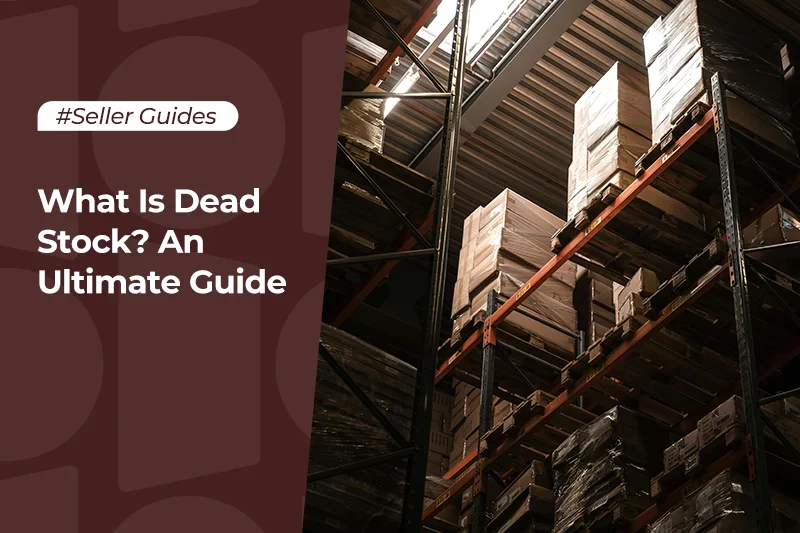A simple guide to bulk selling markets

If you’re currently planning to start an online business, you’re probably finding that you have a wide variety of business models to choose from; from dropshipping or storing your own inventory to direct-to-consumer retailing or bulk selling.
In this article, we’re going to be looking specifically at bulk selling, where you'll get a quick guide into what bulk selling is and why it could be a good business model for you. We’ll also share some insights on how you can build your business with bulk selling on Alibaba.com.
Table of Contents
- What is bulk selling?
- What are the benefits of bulk selling and wholesaling?
- Considerations for bulk selling and wholesaling
- Wholesaling to retail and to other wholesalers
- Building your business with bulk selling on Alibaba.com
What is bulk selling?

Bulk selling is the selling of goods or merchandise in large quantities to retailers, other bulk sellers, or to other business users in the industrial, commercial, or institutional sectors. While bulk selling is typically used in B2B trading, you can also create a separate channel within your bulk selling business to sell to end consumers.
Bulk sellers can sell wholesale goods or merchandise from the agricultural sector (e.g., grain, bulk foods, spices, beans, and other food ingredients), the manufacturing sector (e.g., steel products, cement) or the mining sector (e.g., minerals in iron ore trade).
At present, Eastern Europe accounts for the largest share of the global wholesale market, while the Asia Pacific market is the largest region within the global wholesale market (accounting for up to 51% of the market in 2020).[1] The top destinations for wholesale exports include the U.S.A., the U.K., Australia, Russia, India, and Brazil.
What are the benefits of bulk selling and wholesaling?
There are many reasons why business owners opt to go down the bulk selling route. Some of these reasons are discussed below:
Higher sales revenue without higher marketing expenditure
For every customer obtained when trading as a direct-to-consumer brand, a cost must first be paid to market the products. This is called the customer acquisition cost (or CAC).
Bulk selling means that for the amount it costs you to get one customer who would make a single-product purchase, you could acquire a bulk selling customer who would place a large-quantity order, thereby giving you a higher return for that same cost.
This gives you additional time and financial resources, meaning that you have the option to channel these into other strategic areas that could widen the reach of your brand or strengthen the efficiency of your operations.
Lower-risk route to entering new markets
Entering a new market comes with a slew of associated costs and risks, including those surrounding warehousing, logistics, and marketing. Shouldering such costs can be risky when entering a market that you’re still learning about, and after all, success is not assured.
A good way of offsetting these costs and risks is to start bulk selling to a local retailer who will already have an established market presence and a reliable supply chain. In this way, you can efficiently sell your products in new markets without incurring the significant setup costs or risks associated with trying to sell directly to consumers in a new market.
Considerations for bulk selling and wholesaling

Pricing strategy
Pricing strategies are incredibly important in bulk selling, with bulk sellers often extending discounts to their customers to encourage them to buy in bulk. However, these steep discounts could mean that your business is unable to retain a healthy profit margin if you do not come up with a profitable pricing strategy.
To ensure you’re able to maintain profitability, you should offer your discounts based on purchase order quantities, with increased purchasing rewarded with better prices. By doing this, you incentivize retailers to place larger orders that enable you to increase your revenue. If customers are looking to buy in bulk but not in such high volumes, however, you can ensure your profitability by setting minimum order quantities (MOQs), which customers must fulfill in order to buy from you.
Supply chains
Beyond freight rates (often termed dry bulk rates on the Baltic Exchange) and container cargo stipulations, you will also have to consider supply chain instability and disruptions. These can be frequent as due to the product volume involved in bulk selling, it is usually shipped through ocean freight or dry bulk shipping (using handysize or Supramax vessels).
The past two years of the COVID pandemic have shrouded the dry bulk market in uncertainty as fleet congestion has led to significant delivery delays, which in turn has led to supply shortages within the different markets.
With this in mind, as a bulk seller you should consider diversifying your shipping and supply chain strategy so as to ensure that major disruptions such as these do not put your entire business in jeopardy.
Wholesaling to retail and to other wholesalers
The best way to start wholesaling to retail or to other wholesalers is to start trading on a wholesale marketplace. Marketplaces are advantageous as they often give you instant access to millions of buyers and they already have templates in place for you to easily and quickly set up a storefront to begin trading from.
Ideally, you want to settle on a marketplace that enables easy integration with your store, while offering you essential tools such as billing, inventory management, and lead tracking. Once you’ve set up your store, you need to adopt a number of B2B sales and marketing strategies. These include attending trade shows (in-person or virtually); reaching out to brands that sell complementary products and then agreeing to sell each other’s products on your respective websites; and offering customer incentives such as free shipping, bundle deals, and free samples.
Building your business with bulk selling on Alibaba.com
Alibaba.com is one the world’s largest B2B e-commerce platforms, boasting one of the largest wholesale customer bases online with a global buyer base of 13 million+ retailers. The platform allows you to expand your business in a cost-effective way. If you decide to add a wholesale channel to your business, you can easily set it up on your Alibaba.com storefront, and you will gain access to tons of onboarding resources.
Alibaba.com provides you with crucial B2B tools, such as tools allowing you to set MOQs and volume-based ladder pricing. When it comes to sales, Alibaba.com helps ensure you’re able to maintain profitability by taking a commission as low as 0% for most countries.
Analysts project an upward trend in the global wholesale market, with expected growth reaching $49.37 trillion by the end of 2021, at a 9.7% compound annual growth rate (CAGR).[2] You can grow your business by entering this rapidly developing online wholesale marketplace, and tap into one of the largest business buyer bases by selling wholesale and in bulk on Alibaba.com.
References:
1. https://www.thebusinessresearchcompany.com/report/wholesale-global-market-report-2020-30-covid-19-impact-and-recovery
2. https://www.einnews.com/pr_news/556530125/global-wholesale-market-size-and-wholesale-market-growth-opportunities
Start your borderless business here
Tell us about your business and stay connected.
Keep up with the latest from Alibaba.com?
Subscribe to us, get free e-commerce tips, inspiration, and resources delivered directly to your inbox.














